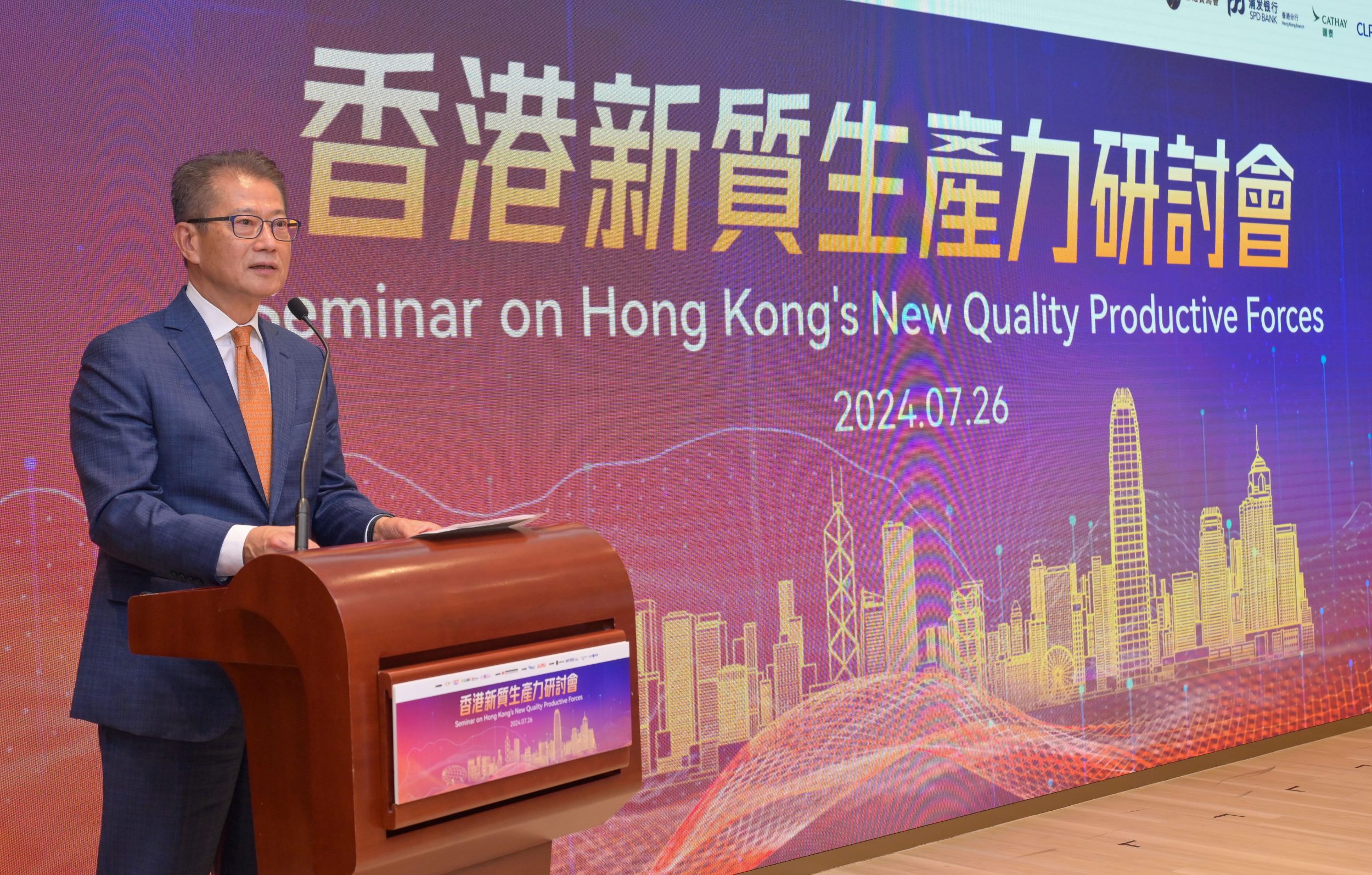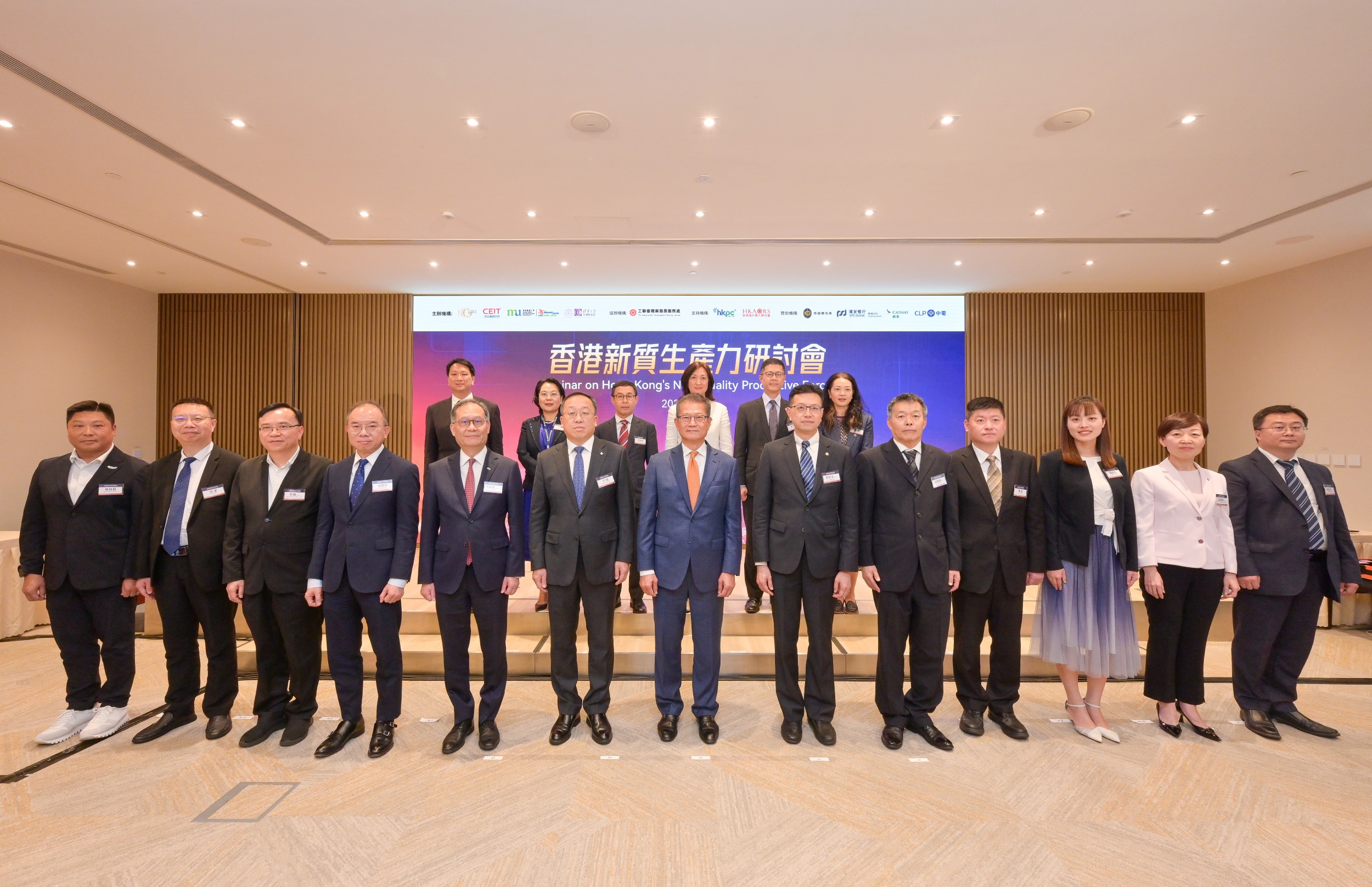
Hong Kong Financial Secretary Paul Chan Mo-po on Friday outlined the city’s strategy to develop new quality productive forces, saying the government will continue its support of funding, talent and partnerships in the sectors that play to the city’s unique strengths.
Speaking at a seminar on Hong Kong’s new quality productive forces, Chan emphasized the importance of fostering new quality productive forces in line with local conditions. “It’s not about doing what others are doing. Instead, we should harness our own advantages and pursue differentiated development,” he said.
The Hong Kong Special Administrative Region’s fundamental strength lies in the “one country, two systems” principle, enabling the city to maintain its own features of a free port, a robust legal system and a high degree of internationalization, Chan said, adding that these advantages have been even more valuable amid a complex global environment.
In addition to its well-known strengths in free flow of production factors, rule of law, and finance, Hong Kong is the only city in the world that’s home to five universities ranked among the world’s top 100, as well as two medical schools in the global top 100.
READ MORE: Innovation, tech to fuel HK’s high-quality growth
The finance chief said he believes the advantages have made Hong Kong highly competitive in areas that include artificial intelligence, data science, and life science.
Meng Shusen, chairwoman of the Information Technology Committee at the Hong Kong Chinese Enterprises Association, underscored the importance of integration between the digital and real economy in technological innovation.
She urged Chinese firms in the city to play a leading role in digital infrastructure, tech innovation, and digital transformation to facilitate the transformation of scientific achievements into productivity and promote the application of innovative technologies in various fields.
Looking ahead, Chan said, the SAR will continue to leverage its advantages as an international financial center, attract more high-level enterprises and professionals, and deepen collaboration with other cities in the Guangdong-Hong Kong-Macao Greater Bay Area in a bid to provide a more favorable environment for fostering new quality productive forces.

In specific terms, based on Hong Kong’s thriving venture capital and private equity ecosystem, the government established Hong Kong Investment Corp to serve as “patient capital”, directly or jointly investing in promising projects.
Moreover, over the past year, Hong Kong has attracted around 60 strategic companies and close to 200,000 professionals, all of which Chan described as advanced elements for developing new quality productive forces.
Collaboration with other cities in the Greater Bay Area will be another focus, Chan said, as the 11 cities can leverage their comparative advantages, and foster even closer cooperation with their own or joint technology parks as platforms.
ALSO READ: HK universities called upon to contribute to new quality productive forces
In his speech, Hu Angang, dean of the Institute for Contemporary China Studies at Tsinghua University, said that as China pushes forward with its drive to become a manufacturing powerhouse, it is vital to promote the “dual circulation” development pattern, in which the domestic economy is the mainstay, and the domestic and international economies complement each other.
In this process, Hong Kong’s role will only be enhanced, he said.
Contact the writer at irisli@chinadailyhk.com



